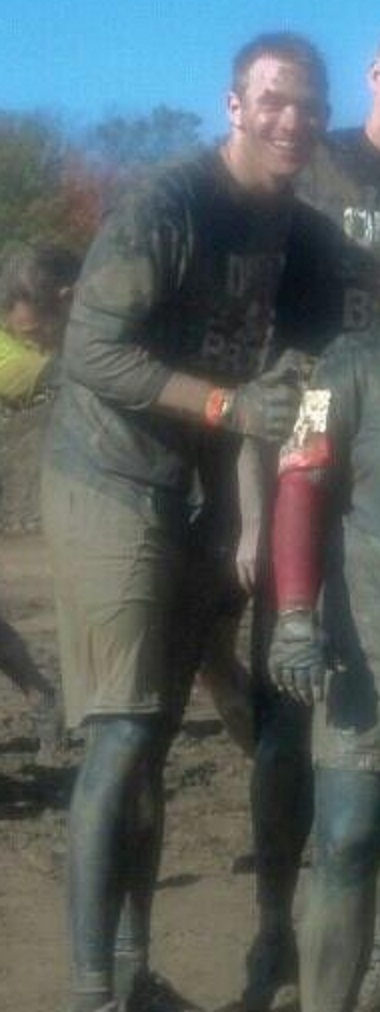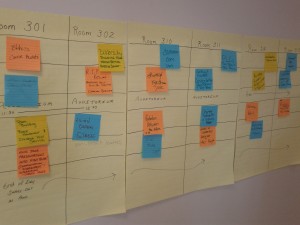I am told that being a school psychologist with a teaching background is an unusual thing. It’s true, I don’t know many other school psychs who were previously teachers, but I don’t know how common or uncommon that is.
For a recent graduate school assignment, we had to write a reflection piece about an important professional decision we had to make. I chose to write about my journey from teaching to school psychology. Here it is, only slightly edited:
***
Perhaps one of the most important professional decisions I have faced was in 2008, when I decided to leave my position as a classroom teacher. While people leave the teaching profession every day, and at an alarming rate overall, my decision was slightly more nuanced than that. I was not chucking it all in and leaving education behind forever in order to start my own business or enter the world of private industry. Rather, I was looking to make what amounted to a lateral move professionally and financially, but one I felt would lead to quality of life improvements for me personally, as well as for my family.
From 2000 until 2008, I taught English at Hunterdon Central Regional High School in Flemington, NJ. It is a large suburban high school (3,200 students in grades 9-12) with a fairly progressive approach to both academics and technology. I was one of about 30 teachers in the English department, and despite some typical cliquishness that one finds in any work situation, we were all a pretty collegial bunch. As a new teacher, I found that my English department colleagues were all only too happy to share materials, lesson plan ideas, constructive criticism, and the occasional shoulder to cry on. After a rocky first year of teaching, I began to establish myself as what most folks considered to be a good teacher – my performance reviews were good, most students and parents seemed to like me, and of course I loved working with my students. In 2002, I began a Master’s program in English literature at my undergraduate alma mater, but dropped out of the program after the first two classes (not courses; class sessions, which is very unlike me). After my class spent six hours torturously explicating the first four lines of an Emily Dickinson poem, I decided that my academic interests lay elsewhere.
A week or so later, I came across an advertisement for coursework at Rider University that would lead to a teaching certification in special education. At that point I had no career aspirations to be a special education teacher, but as I reflected on my strengths and weaknesses as a teacher, I realized that working with kids with special needs was probably the part of my job about which I knew the least. Nothing in my undergraduate teacher training program covered special education, so what little (very little) I knew, I learned on the job co-teaching inclusion English classes with a special education teacher. It seemed to me that undertaking this course of study would be most beneficial not only for me as a professional, but also for the students I taught, so that fall I enrolled in my first of six courses in the certification cycle, “Psychology of Exceptionality”.
This course was taught by an adjunct instructor from Rider, a school psychologist named Tom Barnes. Tom had a very easygoing demeanor and a dry sense of humor that matched my own, so I felt very comfortable in his class learning about all manner of physical and cognitive disabilities to which I was previously oblivious. In addition to teaching us the factual basis of the course material, he also often editorialized from his professional perspective as a school psychologist, which I found interesting. By the time I finished the course I had exhausted my employer’s tuition reimbursement for that academic year, so I had to wait until summer to take the next two courses in the sequence, “Psychology of Learning Disabilities” and “Positive Behavior Support”.
These two courses were also taught by school psychologists who were also the co-chairs of Rider’s graduate program in school psychology at the time, Stefan Dombrowski and Kathy McQuillan. I found myself becoming very interested in the subject matter, especially the coursework that revolved around behavior analysis and behavior support later in the summer. While I was taking these courses with the ostensible goal of earning a special education teacher certification, I learned at some point over the summer that they were also courses in the Ed.S. in School Psychology program, which was significantly longer (60 credits in coursework and practica, plus a 1,200-hour, 6 credit internship), but led to an Educational Specialist (Ed.S.) degree as well as K-12 certification as a school psychologist. At that time, I was drawn to the degree program primarily due to the intellectual stimulation it provided, but also with the idea that I could have another option if I decided at some point in the future I no longer wanted to teach English. I spoke several times with Dr. McQuillan, completed some paperwork and an interview, and that following fall, I matriculated into the Ed.S. program in school psychology on a part-time basis.
Over the next five years, I took all my courses at what felt to be a very slow rate – one in the fall, one in the spring, and two in the summer. Full-time students could expect to complete the program, including internship, in three years. From the time I enrolled in my first course, it took me twice that time to complete my degree, during which I got engaged, got married, bought a house, sold it, and bought another one, and had two kids. I did this all while teaching high school English full time, which also carries with it a substantial amount of time spent outside of school planning, grading, and the most time-consuming part, reading and commenting on student writing. As one might expect, graduate school became a major time commitment for me when my time was sorely needed elsewhere, most significantly with helping with our firstborn when he was an infant. There were several times, especially between 2005 and 2007, when I had to ask myself if continuing the degree program was worth the monumental amount of time it was taking, in terms of both the extended length of the program as well as time away from my wife and child. When I was home, I was either doing coursework for grad school or doing prep work or grading for my day job. At that point, however, I decided that I was more than halfway through the program, and quitting at that point would probably make any tensions at home even worse, since all the time previously spent would have been for nothing.
My daughter was born in early 2008, by which time I had started my last class and was three months away from graduation. At that point we had been through the “new baby” routine once already, and were better prepared for the time budgeting demands that baby, work, and grad school would put on the family. I had also evolved in terms of my professional life. I was in my eighth year of teaching, was one of the more senior members of my department, and was respected at my school as a good teacher and an innovator in the curricular integration of technology. After I graduated with my degree and certification in May 2008, I had to face the big decision: do I stay in teaching, or do I leave to become a school psychologist full time?
Lots of factors came into play in this decision. I had to compare what I would be giving up to what I would gain. Leaving to take a new position would entail losing tenure, seniority, and the social capital gained by my established reputation. I stood to make significantly more money, but because of the way our contractual pay scale was structured, I would get that anyway simply by virtue of the fact that I had attained a degree plus X amount of credits. I did not have to leave teaching in order to get that financial reward, since school psychologists and teachers are paid on the same pay scale in most NJ districts. Finally, I would lose the daily interactions and relationships I had with students. Beside the professional aspects, there was also the personal: my wife and I met working at Hunterdon Central together, and we had both worked there for the entirety of our relationship, from colleagues to boyfriend/girlfriend to married couple. How would things change if I left?
Of course, I did finally decide to seek employment as a school psychologist for the following school year, but it was not without a lot of soul-searching and hand-wringing. I think the deciding factor came down to the out-of-school commitment teachers make. It is no secret that teachers spend hours upon hours after school and on weekends grading and preparing lesson plans, and I was no different. Moving to school psychology would remove that component, allowing me to spend more quality time after school and on weekends with my family. No more rushing home to fret about ungraded work or foregoing the occasional evening event because I needed to tweak tomorrow’s lesson plans. While my new career path is not without its own stressors, it is also not without its own special brand of rewards. After eight years of sacrificing a lot of personal, “off the clock” time to my job, I feel that the professional decision I made four years ago was the right one, not only for me, but for my family as well.
Throughout my previous graduate school experience, there were so many factors that played into the decisions I made. As I described, my gut reaction to the traditional English M.A. program, my intellectual interest in the field of school psychology, the genesis and growth of my own family, and the professional hurdles I faced all played into my decision making process at one point or another. In reflection, I often wonder if I could or should have done things differently. I do not regret leaving teaching to become a school psychologist. Yes, there are days when I miss the regular teacher-student interaction and the relationships I formed with many young adults over the years, but I’ve since found new ways to make a difference in young people’s lives. Perhaps the only thing I wish I had done differently was to tone down the intensity of the coursework during some of those summers, especially after the birth of our first child. I think that my singular focus on getting the degree done was probably to the detriment of my wife, if not my son, and I probably unfairly burdened her (also a full-time teacher) with the brunt of the childcare responsibilities for a period of time. Although I was glad to finish the degree when I did, I perhaps could have stretched it out another year and made my wife’s life a bit easier, as well as spent more time with my infant son. I hope, however, that I am making up for that lost time, both now as well as in the future.

